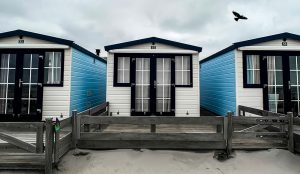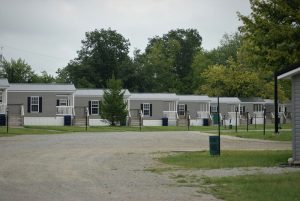The mobile home park industry offers a unique blend of stable cash flows and high demand for affordable housing, making it an attractive investment opportunity. However, financing these investments can sometimes be challenging, particularly for smaller investors or those looking to maximize their returns through innovative strategies. In this blog post, we will explore creative financing solutions for mobile home parks, focusing on options like seller financing and partnerships.
Seller Financing: A Win-Win Solution
Seller financing, also known as owner financing, is a creative financing solution where the seller acts as the lender. Instead of obtaining a traditional loan from a bank, the buyer makes payments directly to the seller according to mutually agreed-upon terms.
Benefits for Buyers:
- Easier Qualification: Buyers who might not qualify for traditional financing due to credit issues or lack of down payment can still purchase the property.
- Flexible Terms: Buyers and sellers can negotiate terms that work best for both parties, including interest rates, payment schedules, and loan duration.
- Lower Closing Costs: Without the need for bank involvement, closing costs can be significantly reduced.
Benefits for Sellers:
- Higher Sale Price: Sellers can often command a higher sale price when offering financing due to the added value of flexible terms.
- Steady Income Stream: Sellers receive regular payments over time, providing a steady income stream.
- Tax Benefits: Sellers may benefit from spreading out the capital gains tax liability over several years.
Case Study: A small mobile home park owner in Arizona decided to retire and sell his park. Traditional buyers were scarce due to the park’s age and need for updates. By offering seller financing, he found a motivated buyer who agreed to a higher price and took over the park with a 10-year payment plan. The seller received a steady income stream, while the buyer successfully improved and modernized the park, increasing its value.
Partnerships: Pooling Resources for Success
Partnerships offer another creative financing solution for mobile home park investments. By pooling resources, expertise, and capital, investors can take on larger projects and mitigate risks.
Types of Partnerships:
- Equity Partnerships: Investors contribute capital in exchange for an ownership stake in the mobile home park. Profits and losses are shared according to the partnership agreement.
- Joint Ventures: Two or more parties collaborate on a specific project, sharing resources and expertise. Joint ventures are often formed for a single investment and dissolved once the project is completed.
- Syndications: A lead investor, or syndicator, pools funds from multiple investors to purchase and manage a mobile home park. The syndicator typically earns a management fee and a share of the profits.
Benefits:
- Access to Larger Deals: Partnerships allow investors to participate in larger, more lucrative deals that they might not be able to finance individually.
- Shared Risk: By pooling resources, partners share the financial risk, making the investment more manageable.
- Combined Expertise: Partnerships bring together investors with diverse skills and experience, enhancing the overall management and profitability of the park.
Case Study: A group of real estate investors identified a large mobile home park in the Midwest that required significant capital for acquisition and improvement. By forming a partnership, they pooled their resources to purchase the park and implemented a comprehensive upgrade plan. Each partner brought unique expertise, from property management to finance, ensuring the project’s success. The improved park increased in value, and the partners enjoyed substantial returns on their investment.
Lease Options: Flexibility for Buyers and Sellers
Lease options are another creative financing strategy where the buyer leases the property with an option to purchase it at a later date. This approach provides flexibility for both parties and can be particularly useful in uncertain market conditions.
Benefits for Buyers:
- Time to Secure Financing: Buyers have time to improve their credit or secure traditional financing while controlling the property.
- Price Lock: Buyers can lock in a purchase price at the beginning of the lease, protecting them from market fluctuations.
- Low Initial Investment: Buyers can enter the deal with a lower initial investment compared to a traditional purchase.
Benefits for Sellers:
- Steady Rental Income: Sellers receive rental income during the lease period, providing cash flow while waiting for the sale to complete.
- Potential Higher Sale Price: The option to purchase can attract buyers willing to pay a premium for the flexibility and opportunity.
Case Study: A mobile home park owner in California wanted to sell his property but was concerned about market conditions. He entered into a lease option agreement with a prospective buyer, who leased the park for three years with an option to purchase at a predetermined price. During the lease period, the buyer improved the park’s operations and secured financing. At the end of the lease, the buyer exercised the option to purchase, and the seller received a higher sale price than initially anticipated.
Conclusion
Creative financing solutions like seller financing, partnerships, and lease options provide innovative ways to invest in mobile home parks. These strategies offer flexibility, shared risk, and the potential for higher returns, making them attractive alternatives to traditional financing methods. By exploring these options, investors can find unique opportunities to enter the mobile home park industry, achieve their financial goals, and contribute to the growth and improvement of affordable housing communities.





